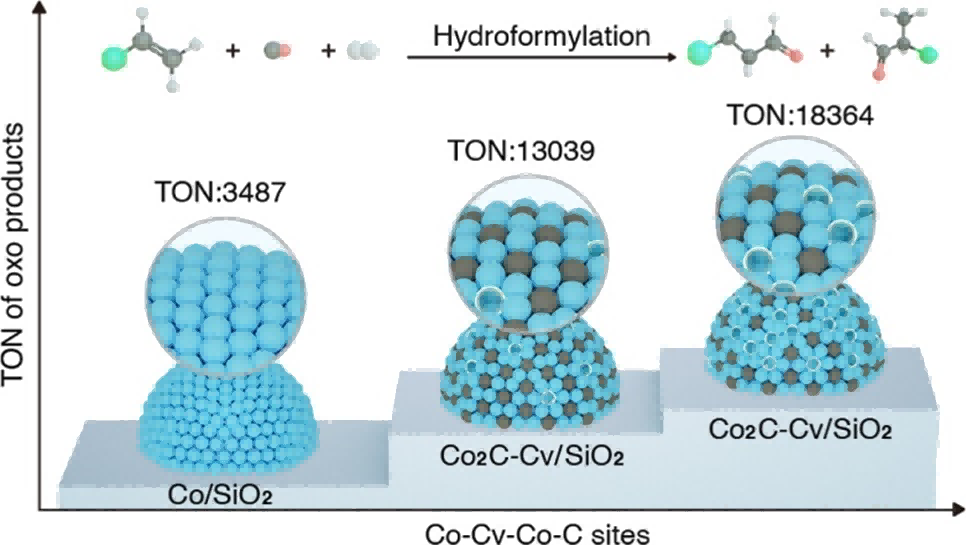Olefin hydroformylation is a carbonylation reaction that produces aldehydes with carbon chain growth from olefins and syngas (CO/H2) atoms with 100% economic efficiency. It can further prepare a series of chemical intermediates and fine chemicals such as alcohols, amines, carboxylic acids, etc. The annual production of various chemicals generated through hydroformylation reactions has exceeded 20 million tons, and precious metal rhodium Rh is currently the mainstream hydroformylation catalyst. The abundant metal cobalt Co has cost advantages, but due to its inherent low activity and low stability, the development of Co based catalysts for hydroformylation is slow.
In response to the above problems, Wang Hui, a researcher of the Chinese Academy of Sciences Shanghai Institute of Advanced Research, has made progress in low-carbon catalytic research on olefin carbonylation in cooperation with researchers from Shanghai University of Science and Technology. The team synthesized Co2C catalysts with carbon vacancies and constructed Co-Cv Co-C symmetric breaking active sites, improving the performance of olefin hydroformylation reactions. The relevant research results are published in the Journal of the American Chemical Society, titled Efficient Alkene Hydrology by Co C Symmetry Breaking Sites.
The team synthesized Co2C catalysts with carbon vacancies and constructed local Co Cv Co C symmetric breaking active sites. Compared to Co and Co2C, they formed a moderate surface charge density gradient, enhanced the adsorption and activation of CO and C3H6, and significantly improved the polarization between CO and propyl groups. In addition, the construction of symmetric breaking active sites shortens the spatial distance between adjacent cobalt atomic sites, enhances the synergistic effect of electronic and spatial structural effects, and reduces the energy barrier of the reaction process. Through H2 pretreatment, the density of Co Cv Co C sites can be further adjusted, and the turnover number of propylene hydroformylation can reach up to 18364, which is superior to all reported cobalt based catalysts and surpasses some Rh based catalysts. This study provides effective strategies for regulating the atomic environment of catalysts and new ideas for the development of new catalysts in complex reactions.
The research work has received support from the National Key R&D Program and the National Natural Science Foundation of China.
Paper link

Efficient Olefin Hydroformylation Promoted by Co-C Symmetric Dislocation




